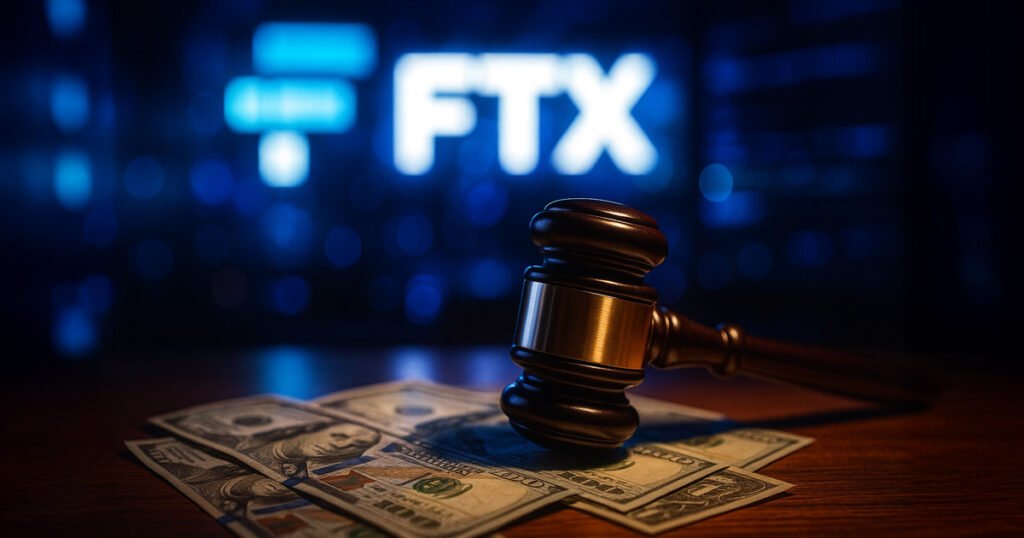FTX vs. Three Arrows Capital: A Legal Clash Over $1.53 Billion Claim
In the high-stakes world of cryptocurrency, the ongoing legal battle between FTX and Three Arrows Capital (3AC) has captured significant attention. FTX’s bankruptcy lawyers have firmly opposed a staggering $1.53 billion claim filed by the now-defunct hedge fund 3AC, labeling the demand as not only “illogical” but also a potential drain on the remaining funds owed to FTX’s legitimate creditors. This clash is not just a financial query; it’s a significant reflection of broader issues in the crypto landscape, where risk management and accountability are pivotal.
Background of the Dispute
The crux of the dispute lies in margin trading activities conducted by 3AC on the FTX platform in 2022. To fund considerable positions in a volatile market, 3AC had borrowed extensively and tapped a $120 million credit facility from FTX. However, post the collapse of the TerraUSD stablecoin, 3AC found itself breaching margin requirements in June 2022. When FTX caught wind of this breach, it notified 3AC; however, the hedge fund did not act for over six hours and instead withdrew $18 million in Ethereum, exacerbating its already precarious position. FTX quickly liquidated 3AC’s account to reclaim $82 million, an action its attorneys assert was both warranted and necessary.
Legal Basis of FTX’s Argument
In newly filed court documents, FTX’s legal team is pushing for the rejection of the $1.53 billion claim from 3AC, arguing that the losses incurred by the hedge fund were largely self-inflicted due to reckless trading strategies and disregard for margin calls. They argue that rather than any misconduct or failure on FTX’s part, it was 3AC’s own excessive risk-taking that led to its downfall. The lawyers emphasize that the liquidation of 3AC’s account prevented a more severe financial impact on FTX’s estate and its creditors.
Questioning 3AC’s Valuation Claims
FTX’s assertion that 3AC’s original claim is inflated is backed by expert testimony from Steven P. Coverick of consulting firm Alvarez & Marsal. Coverick’s analysis of the trades indicates that the forced liquidation was justified and necessary to mitigate further potential losses. The filing also brings in insights from King’s Counsel Stephen Atherton, who argues that 3AC’s legal foundational claims under BVI law are unsubstantiated. By questioning the validity of 3AC’s inflated claims, FTX seeks to set a precedent on accountability and the consequences of reckless trading.
Implications for Creditor Recovery
The implications of this dispute extend beyond the immediate financial demands. As FTX continues to deal with its bankruptcy proceedings, a successful claim from 3AC could significantly hamper the recovery efforts for legitimate creditors still waiting for repayment following the exchange’s collapse in November 2022. FTX’s counsel has voiced concerns that 3AC’s actions appear to be an attempt to shift the blame onto FTX and extract funds from its creditors to salvage its own failing circumstances. This not only raises ethical questions but also calls into question the broader accountability of trading firms in the volatile crypto market.
Next Steps in the Legal Battle
As the case unfolds, 3AC is expected to file a formal response by July 11, with a preliminary hearing scheduled for August 12 in Delaware. The outcome of this legal struggle will likely have far-reaching effects, not only for the parties involved but also for the cryptocurrency industry as a whole. The legal strategies employed in this case may set important precedents regarding creditor claims, risk management, and the responsibilities of crypto trading firms amidst market volatility.
In summary, the legal conflict between FTX and 3AC serves as a pivotal case study in the evolving landscape of cryptocurrency law and regulation. Both companies are deeply intertwined in the fallout from their respective collapses, and how this dispute resolves could shape future industry standards and investor protections in the crypto market.


